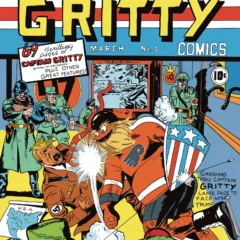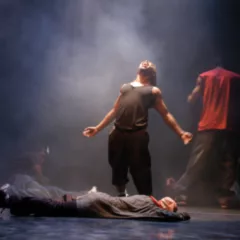
The enemy within
The five nominees for short live action films showing at the Ritz at the Bourse don’t waste much time getting down to business, starting with the French entry, “Ennemis Interieurs,” directed by Selim Azzazi. The fictional story is set during the Algerian civil war (1991-2002) and at a time when French citizens on French soil were being targeted by terrorists. The two main characters of the film, known simply as the Applicant and the Interrogator (both from Algeria), enact an interview for French citizenship. If you ever have been through an interview for citizenship in the west–and I am speaking from experience–there aren’t too many pleasant moments in which you feel like you are welcome during the interrogation about your background, name, or religion. It’s even worse when the interrogator, as here, has the same ethnic origin as you. This is certainly not a film like “The Battle of Algiers,” where Algerians can feel proud of their independence from their French oppressors, but one that casts a critical eye on the choices that fellow Algerians make in order to protect their own lives and those of their families by bowing to the government in their adopted homeland of France.
“Ennemis Intérieurs” may be a difficult film especially for foreigners in the USA given the recent visa travel ban imposed by the Trump administration, but it will definitely leave you wondering which side you wish to be on, as there is no room for neutrality here.
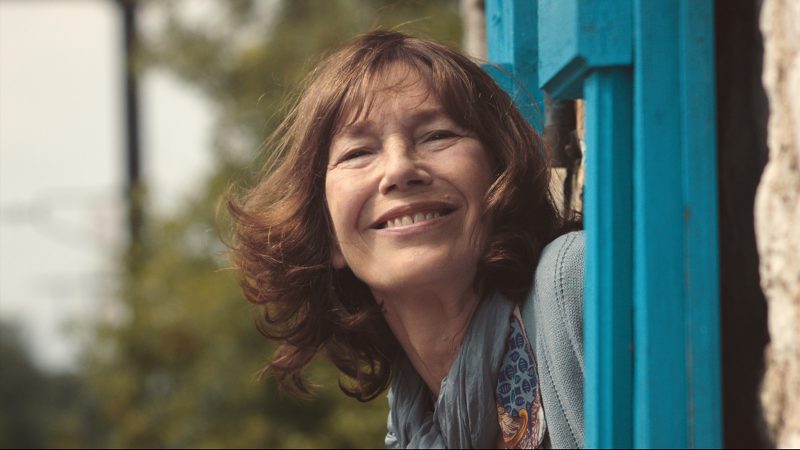
Strangers on a train
Many years hence, and worlds apart in terms of story and politics, “La Femme et la TGV,” by Swiss director Timo von Gunten, is a touching love story between a lonely woman and a TGV (train à grande vitesse, “high-speed train”) driver. The story follows the daily life of Elise Fontaine. The highlight of her day is waving her little Swiss flag each morning at the passing TGV traveling at 300 km/hour on the tracks just outside her window. One day, after her ritual of waving at the speeding train, Elise discovers a sheaf of paper lodged in the blades of the mower she had just begun to use. It is a handwritten letter from Bruno Zubrist, the train driver, who expresses his gratitude and appreciation to Elise for waving to him all these years. Elise, who owns a bakery and is a perfectionist, works up the nerve to reply to him after a failed attempt to get the driver’s personal information from the Swiss Railways personnel, and has to mail her letters instead to him via their HR department. Thus begins a secret affair through the correspondence between the baker and the railroad man. Von Gunten’s storytelling is adorably fresh and simple, and keeps you engaged until you get to the unexpected ending that delivers an equally simple and important message.
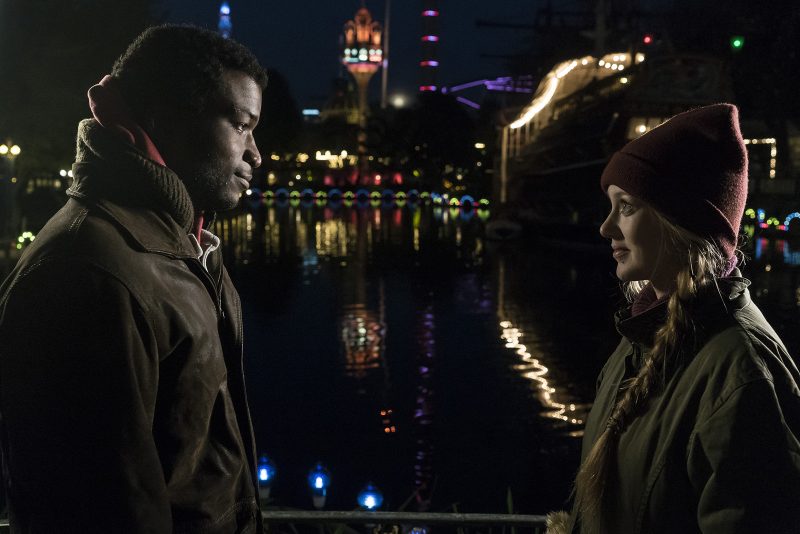
The happiest place in the world to live?
The Danish film nominee, “Silent Nights,” directed by Aske Bang, takes place over the Christmas holidays, and cleverly disguises its critical view of the Danish government’s stance on foreign refugees in this fictional story of Kwame and Inger. (The latest Danish action, by the way–although not referenced in the film, which was made in the previous year–was the bill passed on 24 January 2017 that permits the authorities to seize asylum seekers’ assets that exceed $1250.)
Through the eyes of the Ghanaian refugee, Kwame, we see the racial profiling and hostility he suffers in a land reputed to be one of the happiest places in the world to live. Racism and prejudice are alive in not just local Danes who still refer to blacks as Niggers, but also in Arab migrants who see themselves as above the African refugees. Kwame meets Ingur, who is a breath of fresh air and who shows us the real meaning of kindness, generosity, and open-mindedness that director Bang explores with her savvy film.
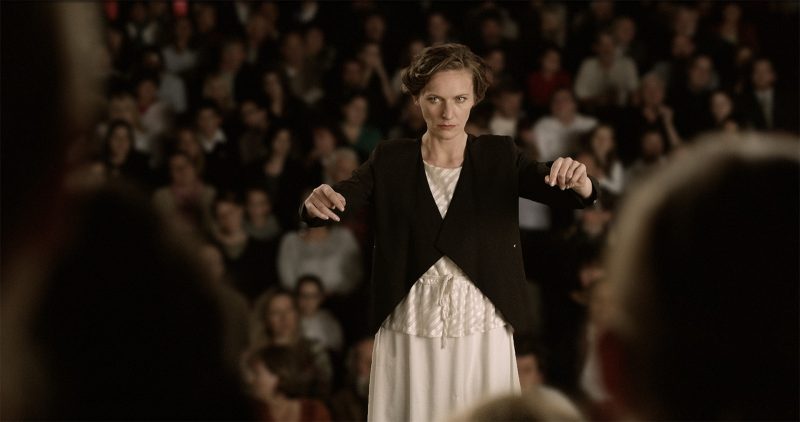
Sing and win
If racial prejudice brings up controversies on the macro level, the Hungarian film nominee, “Sing (Mindenki),” directed by Kristof Deak, deals with a controversy on the micro level. The film is about a girl, Zsofi Havasi, and her good friend Liza and their beloved choir mistress, Mrs. Erika, who turns out to have a cutthroat competitive urge and need to win. The film’s clever direction, wonderful acting, lively musical score, and choir vocals combine seamlessly to impart a courageous and humorous lesson.

Night and day
Last but not least is the lighthearted comedy “Time Code,” by Spanish director Juanjo Pena. The story delves into the world of two parking garage security guards, Luna who works the day shift and Diego who works the night shift. Together, these two guards form a relationship to ward off the boredom of their jobs through a postmodern dance technique known as contact improvisation, in which points of physical contact provide the starting point for exploration through movement improvisation. “Time Code” comes off more as a gag than a short film that appeals to our sense of the surreal, albeit with a generous suspension of disbelief, but a contender nonetheless as it rounds off this year’s list of Oscar nominees for 2017.
The package of all five Academy nominees is showing at the Ritz at the Bourse. Total running time of the program is 130 minutes.


